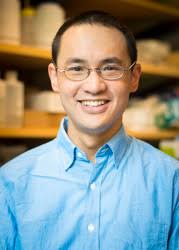About the Seminar
In the first part, I will discuss the influence of molecular motions on NMR chemical shifts. When quasiclassical dynamics are used to take motions into account, very accurate chemical shift predictions can be made without using empirical corrections. This method can also give insight into unusual structures such as [18]-annulene, which is [4n+2] aromatic.
In the second part, I will describe the development of ultrasensitive NMR methods for measuring 13C kinetic isotope effects as a broadly useful tool for probing reaction mechanisms. In glycosylation reactions, these isotope effects reflect both the charge distribution and bond lengths of the transition structure, allowing the SN1 and SN2 mechanisms to be distinguished. I will also use isotope effects to show that nucleophilic aromatic substitutions typically proceed through concerted mechanisms, and that textbook Meisenheimer complexes are actually transition states, rather than intermediates.
About the Speaker
Eugene Kwan was recently a research fellow at Massachusetts General Hospital (cancer genomics), a lecturer at Harvard University, and a postdoctoral fellow with Professor Eric Jacobsen. He obtained his Ph.D. with Professor David Evans. This spring, he will take up a position at Merck Boston as a senior scientist specializing in nuclear magnetic resonance.



